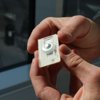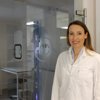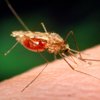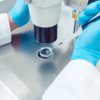Fritextsökning
Artiklar per år
Innehållstyper
-

Ingrid Lönnstedt: What does the p-value mean?
The smaller the better, and preferably smaller than 0.05. A p-value smaller than 5% means that the treatment effect is statistically significant at 5% significance level. But what does that mean? Read Ingrid Lönnstedt´s column to learn more.
-

Mathias Uhlén’s protein atlas is recognised as a global resource
The Human Protein Atlas is the first database in Sweden to be designated a Global Core Biodata Resource. According to Mathias Uhlén, this is a quality hallmark and an opportunity for additional collaborations.
-

Anna Törner: The clinical trial – Periscope to reality
What happens to the patients in the clinical trial is not very interesting, writes Anna Törner in a column.
-

Founder of Bioarctic, Lars Lannfelt, is honoured: “I want to create something for the future”
It´s like a scientist’s dream: to be the world’s first with a drug that genuinely affects one of our major diseases. Lars Lannfelt and his company Bioarctic have achieved just that, and they are thus making a significant contribution to the history of Swedish medicine. He is now being awarded the Research!Sweden Award 2023.
-

“A major energy boost for the entire cancer vaccine field”
The development of cancer vaccines has accelerated in recent years. Norwegian Ultimovacs is one of the companies attempting to develop a new type of treatment line for cancer patients, and the company recently presented positive data from a phase II study.
-

The physician at the tech giant: “Observations in the emergency room made my mind up”
When Nasim Farrokhnia was in third grade at school in Tehran, the capital of Iran, her father gave her a book about Marie Curie, which soon became her favourite book. Perhaps her interest in science was born there and then, as science and new technology have since been a constant feature of her working life. Today, she is a Healthcare Manager in Microsoft’s Western Europe team.
-

The first drugs to slow down Alzheimer’s – but what does it mean for patients?
New treatments for early Alzheimer’s are bringing hope to thousands of patients and their families. The question is, who will get the treatment, how will the right patients be found in time, and will the healthcare system’s resources be sufficient? Life Science Sweden has spoken to Swedish researchers in Alzheimer’s who voice cautious hope but also see further challenges.
-

Charlotta Gummeson leaves Sahlgrenska Science Park – “It feels sad and exciting at the same time”
With mixed emotions, Charlotta Gummeson will leave her position as CEO of Sahlgrenska Science Park in October. “It feels sad and exciting at the same time. I’ve been in the thick of things and part of the development for so long now, but I’m also looking forward and thinking about all the new things that there will be in a freer role,” she says to Life Science Sweden
-

Astra Zeneca’s Sweden CEO: “We have great faith in our portfolio”
It all started with a summer job as an operator at Astra’s chemical factory in Snäckviken, just outside Södertälje. More than three decades and countless different assignments later, Per Alfredsson, born and raised in Södertälje, is CEO of Astra Zeneca Sweden, which employs 7800 people in Södertälje, Stockholm and Gothenburg. “It was a very special feeling to be in charge of the entire organisation,” he says in an interview about his career and potential future blockbusters.
-

From the sea of Åland to a self-test for lithium
Four years ago, a meeting on the sea of Åland resulted in the development of a self-test for lithium levels in the blood. The hopes are that the test will be available for individuals with bipolar disorder in the future.
-

Heidi Stensmyren is eager for new challenges in the biotech industry
Heidi Stensmyren has served as President of the Swedish Medical Association, held a managerial position at Karolinska University Hospital and is now Medical Director at a biotech company. “I’m curious and like to have influence, so I’ve often chosen management roles,” she says.
-

Here are the pharmaceutical companies best prepared for AI
How well prepared are pharmaceutical companies in the field of artificial intelligence? That is what a new analysis has tried to evaluate.
-

Life Science Sweden heads to the Oresund region! ‒ Hello there Michael Linnell
Life Science Sweden’s The Future of Swedish Danish Life Science and New Updates in Drug Formulation & Bioavailability meetings are coming up soon. We asked Michael Linnell, project manager for Life Science Sweden’s event portfolio, a few short questions.
-

Lucy Robertshaw: Artificial intelligence – is this really going to transform a patient’s life?
In a column Lucy Robertshaw reflects on how AI and new regulations will affect healthcare, innovation and the lives of future patients.
-

Anna Törner: The minute between life and death
“I have never told anyone about this day that happened more than 20 years ago. But I sometimes reflect on what happened, on what might have happened. When I try to understand why I haven’t told anyone, I find the answer: a feeling of shame
-

Rapid developments in AI – “All stakeholders are struggling to understand it”
Artificial intelligence is being discussed more and more, and developments in the field are moving rapidly. As the Swedish Medical Products Agency testifies, keeping up with developments is not easy.
-

Study: Semaglutide tablet produces weight loss
The pharmaceutical semaglutide is effective for weight loss even when given in tablet form, according to a phase 3 study.
-

Samuel Lagercrantz: The government’s performance in healthcare and life sciences so far
Since the change of government in Sweden, developments in the healthcare sector have shown promising signs, but the outlook in life sciences is less promising, writes Samuel Lagercrantz in an editorial.
-

A new malaria vaccine offers hope but much more research is still needed
There has long been no vaccine against malaria, but there have been breakthroughs in recent years. However, it is still unclear how we become immune to the malaria parasite, and this is a vital piece of the puzzle for creating effective vaccines, says malaria researcher Kristina Persson.
-

Uncertainty about the government’s life science work
The government’s national coordinator for life science, Jenni Nordborg, left her position almost four months ago. No one has yet succeeded her, and now questions are being raised both about the government’s plans for the office and the Swedish life science strategy.
-

KI’s new President: “We need to work closer together”
A closer link between research and education and a stronger “we-feeling” are aims that Annika Östman Wernerson sets out to achieve as the new President of Karolinska Institutet. She will not give up her research entirely though. “I think it’s crucial to maintain a close presence in the business,” she says.
-

Fem saker du måste veta om AI 2023
Är ditt jobb hotat av maskininlärning? Varför är det viktigt att hänga med i utvecklingen inom artificiell intelligens? Här får du svar på vad du behöver veta om AI just nu.
-

Major advances in IVF labs in the last few decades
Since the introduction of in vitro fertilisation several decades ago, many developments have been made in the field, and the main part of that development has taken place in the lab.
-

“I am driven by the desire to develop a product that can be sold worldwide”
Ranked number one in the world by the WHO in diarrhoea research and soon in phase III studies for its vaccine candidate – Scandinavian Biopharma is rushing forward in the pursuit of the world’s first ETEC vaccine. Meet the company’s CEO Björn Sjöstrand.